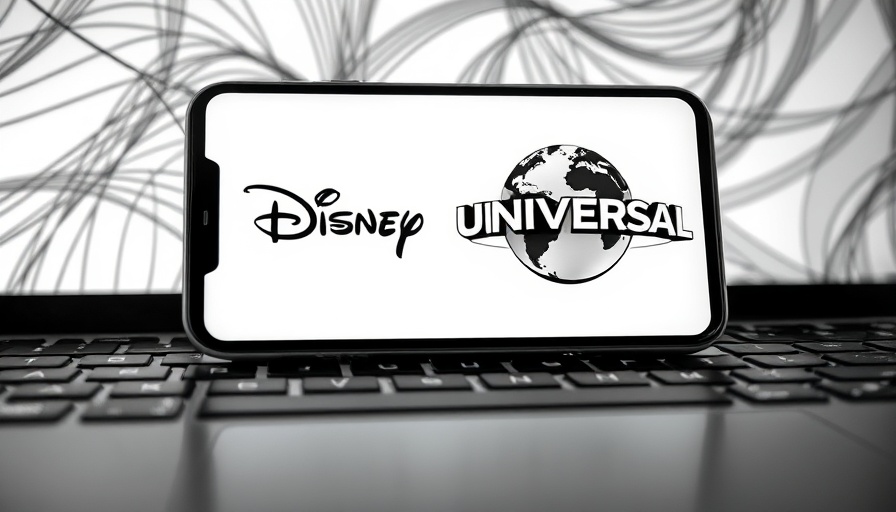
Unveiling the Controversy: Generative AI and Copyright Law
Midjourney, a groundbreaking generative AI startup, recently stirred the pot in the entertainment industry with its new video tool capable of animating iconic characters such as Disney's Wall-E starkly holding a gun. Following its launch, the tool quickly attracted legal scrutiny when Disney and Universal filed a major copyright lawsuit against the company, claiming that its operations infringe upon their intellectual property rights. This situation encapsulates a critical moment in the evolving relationship between technology and copyright law, particularly as AI continues to advance.
Navigating the Boundaries of Creativity and Legality
The recent developments raise pressing questions about the boundary between creative expression and copyright infringement. Midjourney's V1 tool allows users to create short animated clips using generated images, yet the legal implications of combining recognizable characters from established franchises are substantial. As platforms like Midjourney push the limits of what AI can do, they also prompt legal entities to reconsider existing frameworks designed to protect intellectual property.
AI-generated Outputs: A Double-edged Sword for Brands
Marketing managers must be acutely aware of how generative AI can both enhance creativity and challenge brand integrity. The potential to generate animated content featuring popular characters can serve as a powerful marketing tool to engage audiences; however, it can also pose risks. The lawsuit underscores the necessity for brands to maintain control over their intellectual property while navigating the innovative and often nebulous landscape of AI-generated content.
Future Implications for Content Generation
As the lawsuit proceeds, it raises questions about future implications on content generation with AI. Will companies like Midjourney establish clearer guidelines to prevent copyright issues, or will the platform continue to push the envelope until challenged legally? Stakeholders in marketing and content creation must begin to plan for a landscape where checks and balances may prioritize creative freedom against the protection of intellectual property.
Understanding the AI Landscape: What Consumers Should Know
While brands grapple with the legality of generative AI tools, consumers too may need to be educated. As AI becomes increasingly integrated into media marketing strategies, understanding how these technologies work will empower audiences. Transparency from companies about how AI influences content creation could enhance consumer trust and engagement, especially as AI-generated content becomes more prevalent.
The Role of Marketers in Shaping Future AI Practices
Marketers have a vital role in shaping the dialogue around the use of AI in creative fields. By advocating for ethical practices and respect for copyright laws, marketers can help build a framework for responsible generative AI use. Promoting creativity while adhering to legal standards will foster innovation without infringing upon the rights of original creators.
Conclusion: A Call to Action for Ethical AI Use
The intersection of generative AI and copyright law is an area rife with complexity and opportunity. As the industry evolves, marketing professionals must champion the responsible use of AI while steering clear of copyright infringements. Staying informed about the legal landscape will not only safeguard your own projects but could also inspire best practices across the industry. Embrace the potential of AI-driven creativity but remain vigilant in advocating for intellectual property rights.
 Add Row
Add Row  Add
Add 




Write A Comment